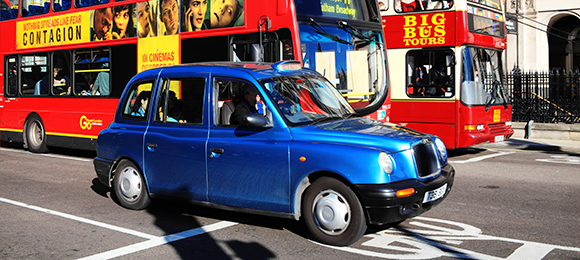Your guide to Public Hire Insurance
04/11/2014by Mark McKenna04/11/2014Your guide to Public Hire InsuranceBluedrop Services

What is Public Hire Insurance?
Public Hire, sometimes referred to as ‘hackney carriage’ or ‘black cab’ are the iconic British taxis that are available to use from a taxi rank or to hail down on the street. These cars will usually have orange lights on the top so the public can tell if they are available for hire or not. Public hire taxis are typically used for travelling shorter distances around town, or when you need to get somewhere quickly. Public Hire Insurance is required to insure these vehicles for the correct form of hire and reward service.
Why do you need Public Hire Insurance?
If you are driving anywhere in the UK then you need third party insurance at the very least. However, as your vehicle is essential to your business, many drivers opt for comprehensive cover.
As you are driving your cab for hire and reward you will need to have Public Hire Insurance, which is a form of taxi insurance and is different to standard fleet insurance or indeed Private Hire Insurance. You cannot operate as a licensed black cab driver without the correct insurance and this is where a specialist insurance broker can help.
You will need to check your local licensing regulations as each authority will have different guidelines on what is required to operate in the area, and what level of Public hire insurance is needed. Getting the wrong insurance can be very costly, leaving you without cover and possibly replacement vehicles should you be involved in any type of accident.
Public Hire Insurance for taxi fleets
If you run a public hire taxi business it can be more cost effective and efficient to insure your entire fleet under on policy. This could save you both time and money as you will no longer have to manage the paperwork for each individual vehicle insurance policy. You can usually insure a taxi fleet from as little as 3+ vehicles and a combination of vehicle types such as saloons and minibuses.
What additional cover do you need with Public Hire Insurance?
Public Liability Insurance (PLI) is recommended as an essential additional item as part of your Public Hire Insurance. Whilst it is not a legal requirement, it will protect your livelihood against third party claims, including injury to passengers or road users. It is best to check with your local authority as some, particularly those in London, will have specific minimum levels of public liability insurance requirements and insist on you having cover to be able to operate.
Other additional cover considerations might include Loss of earnings, breakdown cover, and illness or injury insurance. You can talk through these options with an experienced specialist insurance broker.
What your insurer will need to know if you are looking for cheap taxi insurance
Public hire insurance can be expensive, which is why many taxi firms will be looking for cheap taxi insurance. However, it is important to remember that the right level of cover is generally more important versus cost when it comes to protecting your livelihood. That being said, the following things should be considered if you are looking for cheap taxi insurance.
- What is your location? This can make a big difference in terms of greater risk being attributed to larger cities due to more traffic, nightlife, misbehaviour, etc.
- Driver Age. It can be difficult to find cheaper taxi insurance for drivers under 25, however, Bluedrop offer a true any driver policy.
- How long has your driver held their taxi licence? In general considering the experience of your taxi drivers is an important consideration which will impact on the cost of your premium.
- No claims bonus (NCB). If your drivers have built up a history of no claims then this can be considered when searching for cheap taxi insurance.
- Type of vehicle. The larger and more powerful your vehicle’s engine or they type of fuel it runs on can effect being able to get cheap taxi insurance. This should be considered when purchasing your vehicles.
- Voluntary excess. If you have the money available to pay towards any claims or expenses then raising the voluntary excess will lower the cost of the premium
Return to guide menuWant to find out more about Bluedrop's taxi fleet insurance?
Industry updates, helpful guides and useful information from our experts.
SubscribeBook your FREE Insurance Review for expert advice tailored to your business
Request Review Privacy and Cookie Policy
Privacy and Cookie Policy  Terms of Business
Terms of Business  Making a Complaint
Making a ComplaintIf you are unhappy with our service we have a complaints procedure, details of which are available on request by contacting us on 01489 222 897 or alternatively by clicking Make a Complaint above.
You may be able to refer a complaint to the Financial Ombudsman Service (FOS) if you are unhappy with how we deal with your complaint. The FOS website is www.financial-ombudsman.org.uk
Bluedrop Services (NW) Limited Company No: 7287668 Registered Office: Unit 4 Flanders Road, 1st Floor West Wing, Royal London Park, Hedge End SO30 2LG.
Bluedrop Services (NW) Limited is authorised and regulated by the Financial Conduct Authority. Registration No. 530244. You can check our registration by contacting the FCA on 0800 111 6768 or by visiting www.fca.org.uk/register.

